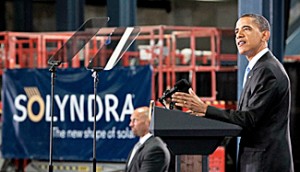Oct
10
Investors Sprinting from Sprint
Posted by: konrad | October 10, 2011 | Leave a Comment
With market share falling, Sprint, currently the U.S’s 3rd largest wireless provider, is banking on technological improvements as well as the new iPhone to reverse its course. While in the long run the tactics may bring in new customers, the company is having to deal with shareholders who are unhappy with the short term outlook and who are doubting the worthwhileness of the investments. Overhauling Sprint’s sluggish 4G network will require the company to borrow substantial amounts of money, resulting in a negative cash flow for the next two years. Adding to the concerns is the fact that the carrier will be selling its iPhones at a loss, hoping to eventually profit from monthly charges.
In its strategy to gain more customers, Sprint has come up with some tactics that are sure to be effective as iPhones and faster service are in high demand. The conflict, however, arises from a disagreement on the time value of money. Investors are not satisfied with the profits they predict the upgrades will bring over the next few years.
It is safe to say that you will not be able to hear a “1-800-PIN-DROP” at a Sprint shareholders’ meeting anytime soon.
Oct
2
 Its a strange sight when floor traders aren’t the most frenzied people on Wall Street.
Its a strange sight when floor traders aren’t the most frenzied people on Wall Street.
That title is now held by the crowd composed of unionized workers and left wing activists participating in the “Occupy Wall Street” demonstrations. While this is hardly the first protest of its kind, it is arguably one of the hardest to understand as the frustrated demonstrators don’t seem to have any clear objectives. One 18 year old told a reporter
….at the end of the day we’re all here because we’re all f****ing unhappy.
For most, the unhappiness likely results from cuts in wages or benefits, or unemployment which are inevitable effects of an economic slump. But the demonstrations have become increasingly irrational and mob like. On Saturday, 700 “occupiers” were arrested for swarming the Brooklyn Bridge and blocking traffic.
At times of unrest, financial corporations are often the top target of disgruntled citizens. The government bailouts American banks received have reaffirmed the image of greed the financial sector is sometimes associated with.
It remains to be seen whether the OWS crowd will change anything for “the 99%” they claim to represent; for now their behavior is disrupting the life of many of these individuals.
Sep
29
Reebok Forced to Tone it Down
Posted by: konrad | September 29, 2011 | Leave a Comment
 It seems consumers are not the only ones unhappy with the exaggerated or unfounded claims that are often used to advertise fitness products. The latest way to get in shape with minimal effort is walking in “toning footwear”, shoes with specially shaped soles that force muscles to work harder to maintain stability. In 2010, just three years after segment pioneer Skechers released its Shape-ups, toning sneakers became a billion dollar market. But while shoe shoppers including Kim Kardashian bought into the idea, the FTC’s Bureau of Consumer Protection was not convinced. After several university studies proved many models offered no more muscle activation than regular sneakers, the producer of one of the worst performing ones, Reebok, has been hit with an unusually severe fine of $25 million. According to the Bureau, the company has been using insufficiently proven claims to market its EasyTones. The money will go towards customer refunds. Meanwhile, Reebok’s competitors are dealing with lawsuits and slumping sales.
It seems consumers are not the only ones unhappy with the exaggerated or unfounded claims that are often used to advertise fitness products. The latest way to get in shape with minimal effort is walking in “toning footwear”, shoes with specially shaped soles that force muscles to work harder to maintain stability. In 2010, just three years after segment pioneer Skechers released its Shape-ups, toning sneakers became a billion dollar market. But while shoe shoppers including Kim Kardashian bought into the idea, the FTC’s Bureau of Consumer Protection was not convinced. After several university studies proved many models offered no more muscle activation than regular sneakers, the producer of one of the worst performing ones, Reebok, has been hit with an unusually severe fine of $25 million. According to the Bureau, the company has been using insufficiently proven claims to market its EasyTones. The money will go towards customer refunds. Meanwhile, Reebok’s competitors are dealing with lawsuits and slumping sales.
While the FTC is right in exposing false data, it is hard to say whether customers who purchased EasyTones deserve full refunds. Stores are full of questionable items and it is up to the consumer to do his research. Moreover, while they may not tone, shoes like Shape-ups and EasyTones have other benefits such as comfort. Is the customer entitled to a full refund based on one feature not working quite as promised?
Sep
19
Oopsolyndra
Posted by: konrad | September 19, 2011 | Leave a Comment
If spending money on expensive things nobody wants was an olympic sport, the podium would most certainly be reserved for politicians.
Solyndra Inc. was a solar power company producing and selling rooftop panels. According to the company website, Solyndra’s unique cylindrical design “offers the benefit of light weight, low cost and the fastest, easiest installation of any solar technology.” While its innovative product may have caught the attention of politicians, consumers were evidently not as convinced as the company was in financial trouble. The latter, however, seemed not to matter much as “merit based” subsidies for “green energy” became the U.S government’s latest tactic to win the public. Despite warnings from a leading accounting firm about the shape of the company, Solyndra received $535 million in federal loan guarantees in September 2009 before shutting down two years later. This story shows how ineffective and damaging government subsidies can be. As was the case with cell phones, automobiles, and other revolutionary products, solar energy will flourish once it proves itself as a useful and financially viable option to consumers. At the moment, 90 million taxpayers can’t be too pleased.
Sep
14

Struggling retailers like Eddie Bauer rely on sales to clear out inventory at seasons' end (image from leeloveshottrends.com)
Think it’s impossible to offend customers with lower prices? Think again.
Bellevue, Washington based outdoor clothing retailer Eddie Bauer sparked anger and criticism last November when it announced its Canadian outlets would put on their own version of the successful Veterans’ Day sale that happens on the week of November 11th at U.S stores. As this holiday is traditionally a prelude to Black Friday, the country’s busiest shopping day, American consumers don’t object to the 75% discount on fall items.
It seems that Canadian consumers, however, don’t see it as ethical to commercialize a day honoring veterans. The announcement of EB’s “Remembrance Day Sale” sparked outrage among veterans, who’s distaste quickly spread across social media websites and the media, generating a lot of negative attention for the company.
What this story exemplifies is how business ethics can vary dramatically between two seemingly similar markets. Apparently the marketing department at Eddie Bauer was not sensitive to the difference between Veterans Day, and Canada’s more solemn Remembrance Day. Despite the rough start, the promotion was rebranded and went on as scheduled.
« go back

